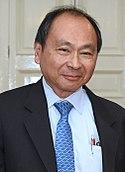Francis Fukuyama Quote
Nonetheless, the lower intensity of interstate war in Latin America did lead to some familiar outcomes. There was much less competitive pressure to consolidate strong national bureaucracies along French-Prussian lines prior to the arrival of mass political participation in the late nineteenth and early twentieth centuries. This meant that when the franchise was opened up in the early twentieth century, there was no absolutist coalition in place to protect the autonomy of national bureaucracies. The spread of democratic political competition created huge incentives in Argentina, Brazil, Mexico, Colombia, and other countries for democratic politicians to use clientelistic methods to recruit voters, and consequently to turn public administration into a piggy bank for political appointments. With the partial exceptions of Chile and Uruguay, countries in Latin America followed the paths of Greece and southern Italy and transformed nineteenth-century patronage politics into full-blown twentieth-century clientelism.
Nonetheless, the lower intensity of interstate war in Latin America did lead to some familiar outcomes. There was much less competitive pressure to consolidate strong national bureaucracies along French-Prussian lines prior to the arrival of mass political participation in the late nineteenth and early twentieth centuries. This meant that when the franchise was opened up in the early twentieth century, there was no absolutist coalition in place to protect the autonomy of national bureaucracies. The spread of democratic political competition created huge incentives in Argentina, Brazil, Mexico, Colombia, and other countries for democratic politicians to use clientelistic methods to recruit voters, and consequently to turn public administration into a piggy bank for political appointments. With the partial exceptions of Chile and Uruguay, countries in Latin America followed the paths of Greece and southern Italy and transformed nineteenth-century patronage politics into full-blown twentieth-century clientelism.
Related Quotes
About Francis Fukuyama
Fukuyama is best known for his book The End of History and the Last Man (1992), which argues that the worldwide spread of liberal democracies and free-market capitalism of the West and its lifestyle may signal the end point of humanity's sociocultural evolution and political struggle and become the final form of human government, an assessment met with numerous and substantial criticisms. In his subsequent book Trust: Social Virtues and Creation of Prosperity (1995), he modified his earlier position to acknowledge that culture cannot be cleanly separated from economics. Fukuyama is also associated with the rise of the neoconservative movement, from which he has since distanced himself.
Fukuyama has been a senior fellow at the Freeman Spogli Institute for International Studies since July 2010 and the Mosbacher Director of the Center on Democracy, Development and the Rule of Law at Stanford University. In August 2019, he was named director of the Ford Dorsey Master's in International Policy at Stanford.
Before that, he served as a professor and director of the International Development program at the School of Advanced International Studies of Johns Hopkins University. Previously, he was Omer L. and Nancy Hirst Professor of Public Policy at the School of Public Policy at George Mason University.
He is a council member of the International Forum for Democratic Studies founded by the National Endowment for Democracy and was a member of the Political Science Department of the RAND Corporation. He is also one of the 25 leading figures on the Information and Democracy Commission launched by Reporters Without Borders. In 2024 he received the Riggs Award for Lifetime Achievement in International and Comparative Public Administration.
